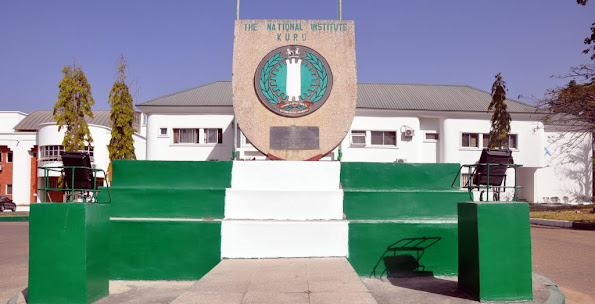What Research Has Joined Together, Let No Methodology Put Asunder - By Bell IHUA
One of the
common sins of Social Researchers is that after several years on the job, they
begin to see human beings as tools to be used to achieve their research objectives.
They no longer see the human side of their participants, but see them as mere
puns on their chess board; just for the purpose of accomplishing a great research
piece for publication or one that the client would be happy with when
delivered. Unless social researchers train themselves consciously, they would
find themselves guilty of this sin. I confess, I’m sometimes guilty. Ever so often,
I catch myself veering off at events. Instead of relaxing and enjoying the
moment, I seat there wishing I could share a few questionnaires, conduct a
quick focus group or personal interviews to capture people’s opinions on any
subject; especially when I have spotted a few folks in the crowd who seem quite
opinionated. Of course, in a country like Nigeria, there are so many issues and
concerns that could form the basis of conceptualizing an on-the-spot research project.
You wouldn’t want to know some of the weird things cooking up in the mind of social
researchers. A fellow researcher told me he had once imagined visiting the
mortuary to interview corpses on causes of their death!
Luckily for me,
I learnt very early in my research career that there’s so much more to people than
seeing them as mere tools- respondents, participants and interviewees. My
Professor, Andrew Fearne, modelled this a lot. He was the sort of researcher that
made friends and built relationships alongside his academic and research
journey; and the result was evident in the kinds of consulting assignments he
was called on to handle, the number of external examiner roles and visiting
professorships he received, the amount of research grants he won, and the
exceptional collaborations he had with other academics and institutions across town
and gown. So, I decided I wasn’t going to be a straight-jacket researcher, who only
focuses on his research outcomes and deliverables, without seeking to touch
base with the people I came in contact with on my research journey.
Fast forward to
2013, when ENABLE, a DFID programme in Nigeria, commissioned my firm to conduct
a study on the impact of the MYTO II
electricity tariff regime on SMEs in the country. One of the locations I had to
visit was Bauchi State. The mandate was clear; (1) to meet and interact with members
of the state branch of the National Association of Small and Medium Enterprises
(NASME), and (2) to interview owner-managers of SMEs in the state. Interestingly,
I had the opportunity of meeting and interviewing several MDs and heads of leading
Bauchi-based businesses, such as Alind Wires, Superior Core Industries and
Bauchi Furniture to mention a few. However, on that journey, one particular interview
left an indelibly remarkable impression on me. It was the session with Hajiya
Aishatu Garba Lili, the owner of popular Al-Barka Bakery in Bauchi.
It was a sunny
afternoon, and I visited Hajia Aishatu in the company of the NASME State Assistant
Secretary at the time, one Alhaji Suleiman Gambo. On arrival at Hajia’s home, he
did the initial introduction, explaining how I was an Abuja-based researcher visiting
town to conduct a study on impact of the power sector and new electricity
tariff on SMEs in Bauchi. His introduction was instantly met with stiff resistance.
Hajia quipped “you people have come again. Many researchers have come here to
interview us, and after they finish, we never see them again or see any changes
in the challenges that we face.” Thank goodness, it wasn’t my first time
hearing that sort of statement, so I simply smiled and watched quietly as she
spoke. I sat in her lounge for close to an hour as she went back and forth
attending to other issues and reverting at intervals. She decried the poor
state of infrastructure, epileptic power supply, rising cost of raw materials (particularly
flour and sugar), incidence of multiple taxes, and the lack of credit bedeviling
the industry and hampering their operations. Things were tough, the economy was
tight, and she had recently downsized and cut over half of her employees. What
do you do when you’re faced with this kind of situation on the field?
Sometimes,
researchers must learn to empathize with respondents. I could see that her
initial resistance and apathy wasn’t because she had anything against me, but
it was borne out of the frustrations, struggles and challenges of being a
manufacturer in a country like Nigeria. I could tell that beyond the resistance
was a kind-hearted woman, caring mother and community leader who many people
looked up to for their survival. So, I sat patiently, smiled and gazed as she bore
her heart on the challenges facing her bakery operations. Then after about an
hour she turned and said to me, “what did you say your name is again?” I
responded, and she retorted “I hope you’re not offended with me? It’s just that
we’ve seen several researchers like you in the past, promising to address our
issues, but after the interview, we never hear from them again.” I made her a
candid promise, I wasn’t going to be a one-hit researcher, but I’ll keep in
touch even after completing the assignment. Her eyes brimmed, I could tell she
was happy, and she proceeded to answer my questions; even granting me access to
site and take shots of electricity bills covering the period under
investigation. I successfully conducted the interview and made a new friend in
the process. I took pictures with her, and she gifted me with three loaves of
her vintage Al-Barka Bread. She also shared her plans to apply for the YouWin
Women entrepreneurs grant, of which I encouraged her to give it a shot! This
marked the beginning of a long son-and-mother relationship between Hajia
Aishatu and I.
The weeks,
months and years that followed became one of friendship, family and bonding. It
never mattered if she was Muslim and I a Christian. She called at intervals to
check up on me, and I would do the same as time permitted. It became a standard
rule amongst my colleagues, that anyone visiting Bauchi on projects must go pay
homage to my mother, Hajia Aishatu. Suffice to say, she won the YouWin grant
and rang me excitedly on phone to break the good news. She visited me in the
office, at home, and met with my family several times. There was no time she
visited Abuja that she wouldn’t call, bringing me Bread, Dried Meat (Kilishi)
and Shredded Beef (Dambu Nama), all the way from Bauchi. Once I received her
calls, I would drive down to wherever she was lodged and spend some time with
her. Similarly, when it was Eid celebration, I would send funds to Alhaji Gambo
to buy a ram and deliver to her home. She never ceased calling and praying for
me and my family. However, sometime in late 2016, I received a call from her
daughter, that Hajia was involved in an accident and hospitalized in Jos. I
spoke to her on phone and prayed with her. She was later brought to Abuja to
receive further treatment. My wife and I paid her a visit at Garki Hospital,
spent some time with her, and had the opportunity of meeting her husband for
the first time. Apparently, he had heard about me and said, “So you are the Dr.
Bell I’ve been hearing about. It’s good to meet you.” Her health picked up afterwards
and she returned to Bauchi.
Sadly, on 13th
November 2017, I received a call from one of Hajia’s nieces informing me of her
demise. I immediately rang her daughter, who confirmed the news. I was broken,
I was shattered, I wept like a baby, it was black Monday. My beloved Hajia
Aishatu Garba Lili, was no more, and I never had the opportunity to say
farewell. Regrettably, I was too broken at the time, that I was unable to write
her a tribute. But as we come close to her 1st year memorial in
about a month’s time, I have spent some time reflecting on my relationship with
Hajia. This was truly one relationship research joined together, and I pray for
God’s continued strength on her family.
In conclusion,
social researchers often find themselves excessively bogged down with trivial
details bordering on methodological correctness and ethical concerns, that we tend
to lose sight of the human angle of our work. I believe this is a critical
aspect of social research, we have to be in touch with people. It is important
to realize that human existence and relationships supersede any gratification
that may come from producing an award-wining research piece. As Dike
Chukwumerije aptly puts it, there’s no culture older than being human, we are first human before anything else.
Dr. Bell Ihua is a public opinion polling and social research
expert. He writes from Abuja.





Comments
Post a Comment